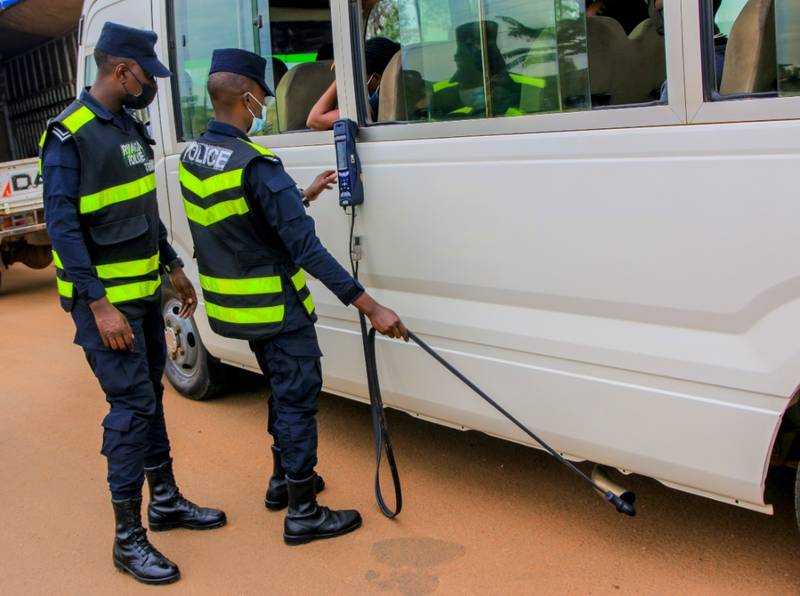Rwandan software developers have introduced an artificial intelligence (AI)-based system to monitor carbon emissions from vehicles, supporting the country’s efforts to improve air quality and public health.
The system, developed by Greenalytic Ltd., uses electronic devices installed in vehicles to track emissions in real time. The data is transmitted to online dashboards that allow drivers to monitor their vehicles’ pollution levels and ensure compliance with environmental regulations.
“We have developed electronic devices that work alongside software platforms to control vehicle emissions,” said Emmanuel Tuyizere, founder of Greenalytic Ltd. “Drivers can now see the amount of emissions their vehicles are producing and take action to meet government standards.”

The launch coincides with the government’s plan to roll out enhanced vehicle emissions testing in May 2025. The new framework will separate emissions testing from mechanical checks while maintaining both services at existing technical inspection centers, known locally as Contrôle Technique.
For the first time, motorcycles will also be subject to emissions and mechanical testing — a move officials say is critical to protecting public health and the environment.
All emissions testing bookings will continue to be processed through the Irembo platform, streamlining the process for vehicle and motorcycle owners.
Authorities are urging owners to regularly service their vehicles to meet emissions thresholds and support Rwanda’s broader sustainability goals.
“Our mission is to tackle vehicle air pollution,” Tuyizere said. “When the government introduced restrictions on registering new diesel-powered motorcycles, we saw an opportunity. We measured emissions from over 400 motorcycles in Kigali using our devices.”
Greenalytic is also refining its AI-powered dashboard platform to offer advanced data analytics. According to Tuyizere, the system uses machine learning to predict when a vehicle might need servicing, assist in diagnostics, and help owners take timely action to reduce emissions.
“AI helps us build predictive models that guide vehicle owners on maintenance needs,” he said. “It serves as a valuable tool for real-time diagnostics and decision-making.”
Minister of State in the Ministry of Infrastructure Olivier Kabera said the initiative underscores Rwanda’s embrace of AI to support its green growth and climate resilience agenda.
“In the midst of rapidly changing dynamics, Rwanda recognises the immense potential of AI to drive its ambitious green growth strategy,” Kabera said. “We’re exploring AI-powered tools in land use, traffic monitoring, infrastructure planning, and climate forecasting.”
Speaking at the AI & Green Growth side event in Kigali, Caroline Raes, country representative of the Global Green Growth Institute (GGGI), said AI technologies are already helping optimize energy grids, improve waste management, monitor deforestation, and support precision agriculture.
“These capabilities can significantly contribute to achieving net-zero emissions, reducing pollution, and protecting biodiversity,” Raes said. “We’re piloting AI tools to forecast tea yields and predict climate events that could lead to disasters.”
Rwanda has a long-term goal to be a carbon neutral nation as articulated in its Vision 2050.

In the short term, Rwanda aims to reduce emissions by 38% compared to business as usual by 2030 and electric vehicles are estimated to represent 9% of potential energy-related emissions mitigated under the country’s climate action plan (NDC).
As Rwanda prepares to expand its emissions testing mandate, officials and innovators alike say AI-backed systems will be critical in creating cleaner, healthier urban environments.











